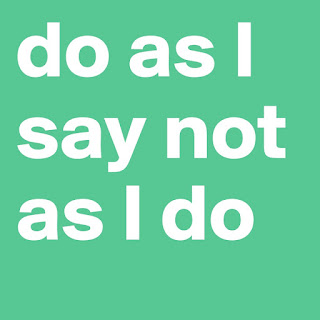It's that time again. Yep, time to throw your money to the wind and buy another lottery ticket for the chance (however ever large that is these days) to win millions of dollars.
Of course, if you do win, everyone (including your family, neighbors, friends, and scam artists will come knocking on your door to claim a portion of your new found wealth.
Have you ever wondered why that is? Why is it when someone wins the lottery that everyone knows it was you? Well, as it turns out, most every state that has a lottery has a rule that all winners names are public record; your name and the city in which you reside. In 2013, New Jersey Gov. Chris Christie vetoed a bill that called for a one-year delay in releasing names because it "could" reduce lottery sales. No evidence that it would but heaven forbid we the people are secure in our persons.
Really? So the reason government releases the names of formerly private persons is to keep the money flowing? That the only thing governments care about is money? Don't care about privacy rights of the individuals - gotta make sure that pipeline of cash keeps moving through. Heck, California made a game of all this by incorporating the "right" to announce people's names (specifically, those people who win the California Lottery) in the California Public Records Act.
The thing that roils me is the reasoning politicians make for making the names of people public record who win the lottery. "Winners need to be public so the public has faith in the lottery," said Phil Ting, D-San Francisco. So, in politician-speak, what you are saying is, as long as everyone knows what every one is doing, we'll all have faith that no one is doing anything wrong? Is that about it, Mr. Ting?
So, when you (Mr. Ting) assisted your fundraiser, Safai Ahsha, to avoid paying lots and lots of property taxes on a house purchased back in 2007, you made sure everyone was watching, right? No?
Or how about when you repeatedly violated state ethics rules by ghost voting for fellow assembly members on bills, you made sure the public knew it was you all along, right? No?
Funny how the laws always seem to favor the politicians. Don't do things unless everyone knows who is doing them, right Mr. Ting? I guess privacy "rights" only extend to the privileged few (i.e. politicians and criminals, but I repeat myself).
Of course, if you do win, everyone (including your family, neighbors, friends, and scam artists will come knocking on your door to claim a portion of your new found wealth.
Have you ever wondered why that is? Why is it when someone wins the lottery that everyone knows it was you? Well, as it turns out, most every state that has a lottery has a rule that all winners names are public record; your name and the city in which you reside. In 2013, New Jersey Gov. Chris Christie vetoed a bill that called for a one-year delay in releasing names because it "could" reduce lottery sales. No evidence that it would but heaven forbid we the people are secure in our persons.
Really? So the reason government releases the names of formerly private persons is to keep the money flowing? That the only thing governments care about is money? Don't care about privacy rights of the individuals - gotta make sure that pipeline of cash keeps moving through. Heck, California made a game of all this by incorporating the "right" to announce people's names (specifically, those people who win the California Lottery) in the California Public Records Act.
The thing that roils me is the reasoning politicians make for making the names of people public record who win the lottery. "Winners need to be public so the public has faith in the lottery," said Phil Ting, D-San Francisco. So, in politician-speak, what you are saying is, as long as everyone knows what every one is doing, we'll all have faith that no one is doing anything wrong? Is that about it, Mr. Ting?
So, when you (Mr. Ting) assisted your fundraiser, Safai Ahsha, to avoid paying lots and lots of property taxes on a house purchased back in 2007, you made sure everyone was watching, right? No?
Or how about when you repeatedly violated state ethics rules by ghost voting for fellow assembly members on bills, you made sure the public knew it was you all along, right? No?
Funny how the laws always seem to favor the politicians. Don't do things unless everyone knows who is doing them, right Mr. Ting? I guess privacy "rights" only extend to the privileged few (i.e. politicians and criminals, but I repeat myself).

No comments:
Post a Comment